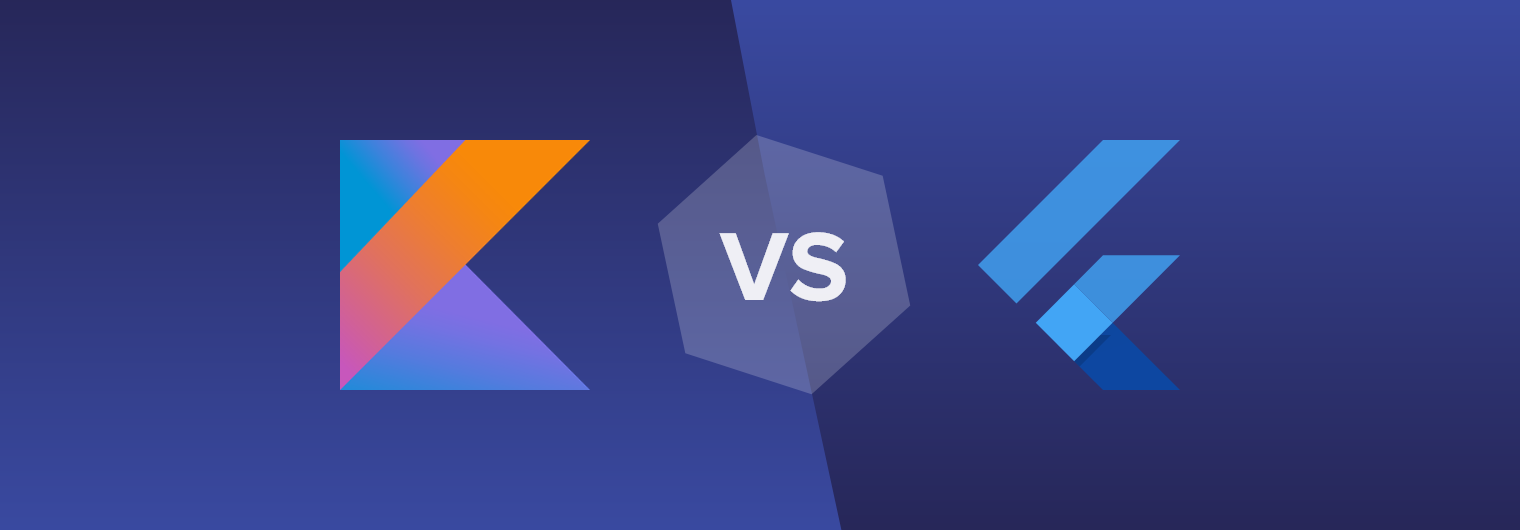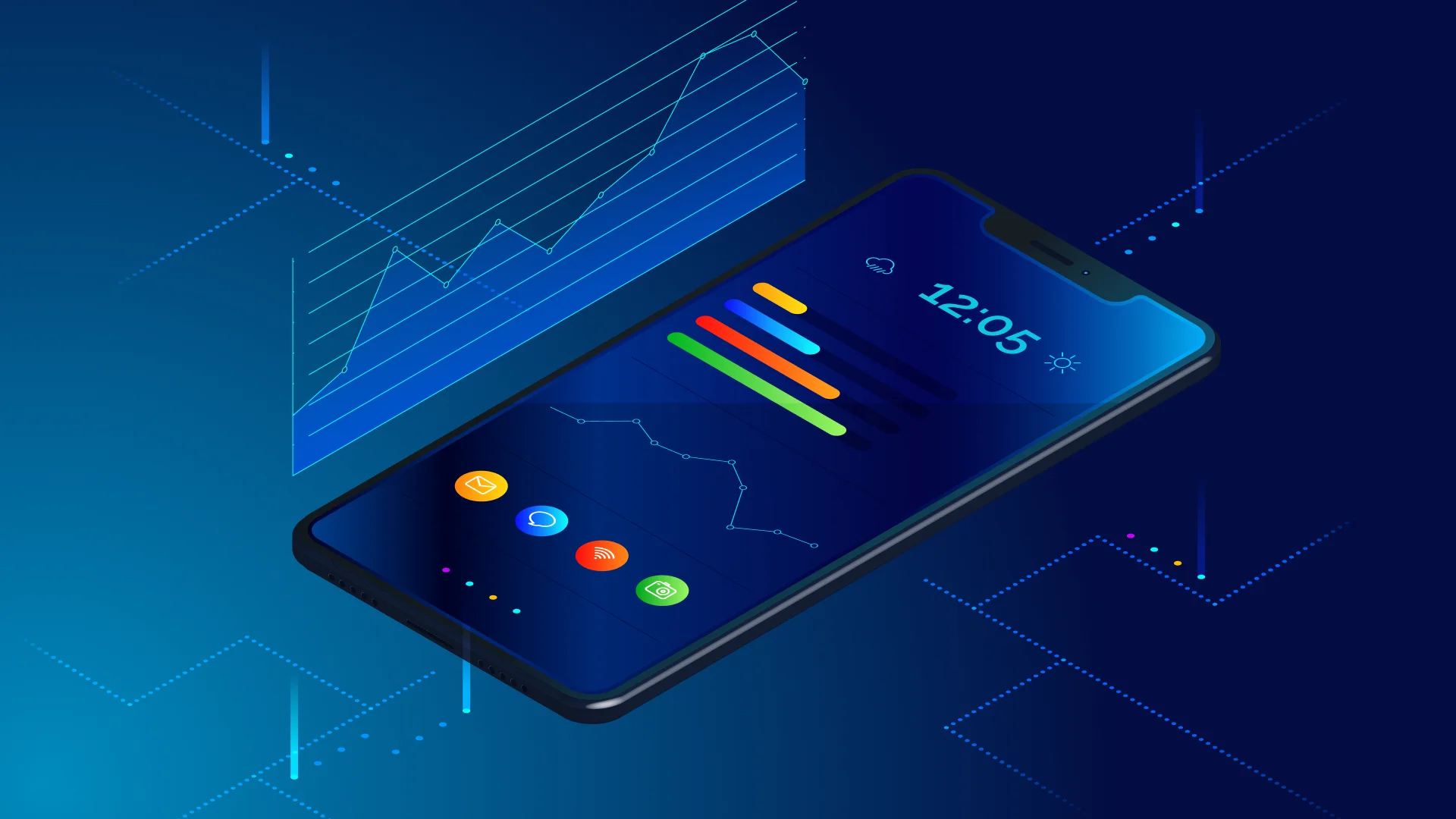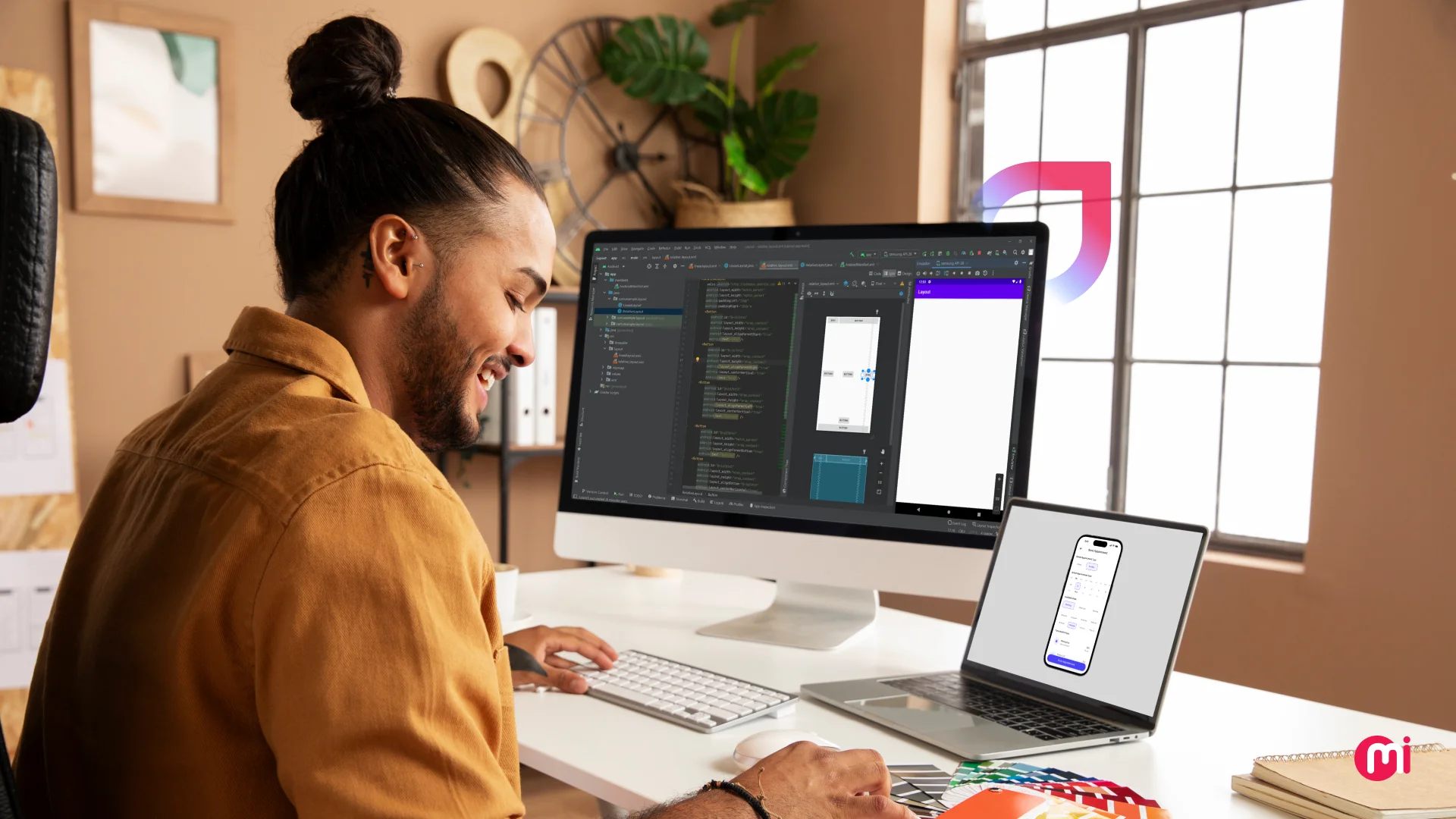Kotlin Vs Flutter: Which Should You Choose For Cross-Platform App Development?
- Mobile
- April 29, 2020
Let’s face it. Now, it is hard to imagine life without apps. From the moment we wake up to the moment we go back to sleep, a plethora of apps surrounds us. As per eMarketer, an average American spends over 3 hours 43 minutes on mobile devices!
With the world of app development, the cross-platform app development market is experiencing immense growth with every passing year. To say that they are the new norm of the app development industry wouldn’t be wrong.
Cross-platform app development allows developers to use one code to develop an app for multiple platforms. According to Stat Counter, approximately 98 percent of the total mobile operating system sector is accounted for by Android and iOS.
Therefore, cross-platform apps that cater to both allow the app developer to reach a broad market for a lower deployment cost.
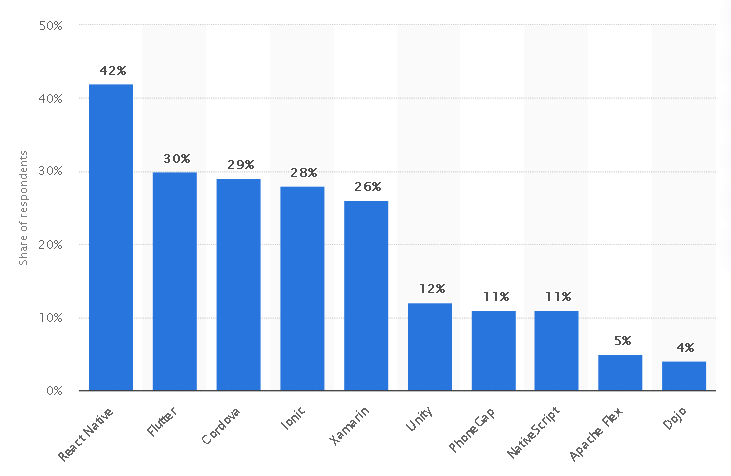
Previously, to develop cross-platform apps, developers had to either rely on Flutter or React Native. However, now a new competitor has entered the market and is a force to be reckoned with- Kotlin.
Between Kotlin and Flutter, it is easy to get confused about which solution is better.
Kotlin Vs Flutter: An Introduction
Before we compare the two platforms to see which one is better, it is first imperative to understand what the two platforms bring to the table.
What is Flutter?
It is safe to say that the Flutter has managed to become quite popular ever since its launch in 2015. According to AppBrain, Flutter accounts for 0.24 percent of the app market and 0.07 percent of downloads.
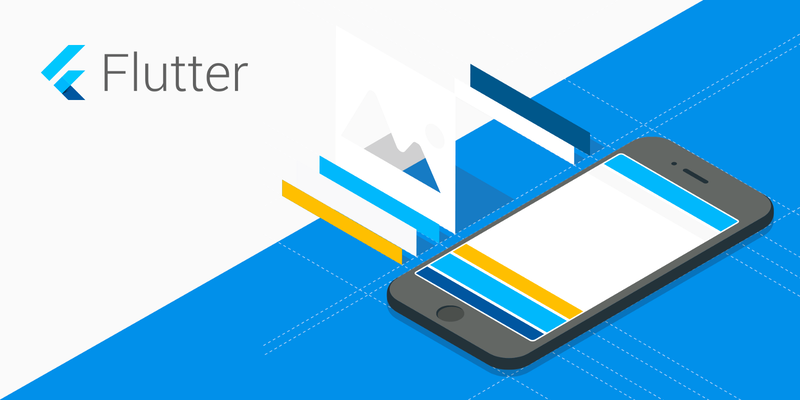
The open-source SDK of Flutter enables the creation of the native-looking web, mobile, and desktop apps using a single codebase. What has allowed Flutter to reign the cross-platform app development market is Google’s insights regarding the technological and market challenges being faced by the industry.
Flutter’s UI emerged as an effective solution for the obstacles, and soon, big brands like Square, Groupon, eBay, The NewYork Times, and Alibaba Group leveraged the platform for the development of their apps.
One key distinguishing feature of Flutter is its ability to secure apps with the same level of protection as websites.
What is Kotlin?
Kotlin is rapidly emerging as one of the most highly adopted languages, only second-best to Java. The platform is supported by Google and is often considered to be the preferred language for Android App development.
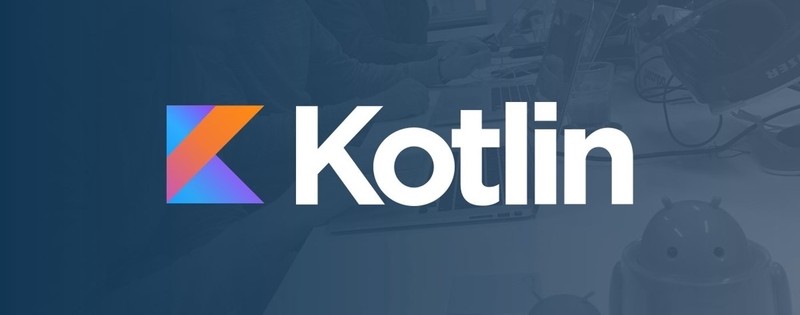
According to AppBrains, over 82,000 apps currently use Kotlin. And its overall market share stands at 9.93 percent apps, and 22.36 percent of downloads. Microsoft Word, Huawei Video Player, and Samsung Experience Service are some of the most popular apps that make use of Kotlin.
Kotlin was designed by JetBrains. The language makes use of Java Virtual Machine and bridges it with unique functional pieces. Together, Kotlin delivers new development properties to app developers.
Since the Kotlin language successfully overrides general programming errors and misconceptions, it is among the most reliable languages and platforms out there. This property also ensures that the apps developed via Kotlin experience minimal crashes and system failures.
Kotlin multiplatform is an additional feature of Kotlin that can be compiled to JVM bytecode, JavaScript or native LLVM code. It can be used for Android, iOS, Web, Desktop, and in backend development in Java framework.
Kotlin Vs Flutter: Let the Battle Begin
Both Kotlin and Flutter have great things to offer to app developers. But, a choice must be made between the two. Here is the Kotlin vs Flutter comparison, based on some of the most imperative metrics there are in the world of app development.
1. Performance
Flutter delivers excellent hot reloading functionality to its users.
What does this translate to?
Well, high-quality reloading functionality allows for convenience in the process of making alterations at the backend while simultaneously viewing the difference of the modifications in the front-end.
In other words, Flutter allows you to easily decide, on-the-go, whether different elements look perfect.
Kotlin doesn’t disappoint with its performance either.
The advantage of the Kotlin language for cross-platform app development is that multiplatform compiles the code in the same format as the platform you are using its form. This allows for better and customized performance. In fact, the performance is comparable to Native apps.
2. Programming Language
Flutter is one of the top cross-platform app development frameworks that use Dart Programming Language, which was introduced by Google. The chances are you haven’t heard of this programming language.
This is because it is rarely used. Yet, it doesn’t mean that it is not effective.
Dart syntax, though rare, is quite easy to understand and learn. Especially for those developers that have already mastered JavaScript.
Kotlin itself is a programming language which is quite similar to Java. As mentioned above, Kotlin was created to interoperate with Java. Hence, just like Flutter, it is easy to comprehend for those who are well-versed on Java.
3. UI Experience
Flutter app development allows developers to take help from a variety of widgets as provided by the platform. This aids in creating customized and effective mobility solutions.
Kotlin multiplatform, on the other hand, does not require the following of any set-in-stone instructions. Instead, it gives liberty to the UI developer to create an app, without any restrictions.
This allows for customized UI experience. In other words, you can create an app that is genuinely unique and aligned with your vision.
4. Price and Testing Support
Both Flutter and Kotlin are open source and hence free to use. So, there is no better player in these metrics.
But, the testing support, the two provide differ from one another.
While Flutter tends to deliver a wide variety of testing features, including a unique widget testing feature, Kotlin focuses more on delivering backend development services. It uses Firebase to offer secure backend options.
Why Choose Flutter?
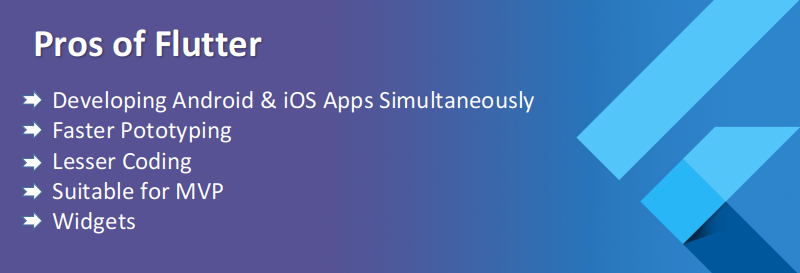
All in all, here are the things Flutter gets right:
1. Hot Reload Functionality
One of the most significant reasons big brands prefer Flutter is because of its hot reload functionality.
This feature helps developers offering Flutter development services streamline both front-end and back-end development, ensuring better decisions are made regarding the various elements of the app.
2. Quick Development and Low Cost
Not only is the platform free to use, but its ability to offer native-like apps using a single codebase significantly reduces the time and cost of flutter app development.
3. Customizable
Since the platform offers various widgets, Flutter gives developers the room to innovate and offer customized solutions to their customers.
4. Best for Developing MVPs
As discussed earlier, Flutter offers the functionality to develop an app for both iOS and Android platforms in minimum time and cost. This makes Flutter a good choice for MVP development and creating app prototypes.
Why Not Choose Flutter?
Not everything is perfect in the world of Flutter. Here are some problems with the platform.
1. App Size
The framework’s size is quite big, compared to some of the other players in the industry. This inadvertently leads to bigger app sizes.
For instance, one of its apps, called “Hello World,” has a size of 6.7 MB. And we all know that the masses don’t prefer downloading apps that take too much space.
2. Rare Coding Language
Yet, Dart is quite easy to learn. Nevertheless, the fact remains that it is not a language most developers already know. Hence, there is a learning curve involved.
Why Choose Kotlin?
Kotlin has a fair share of benefits too. Here is why you should choose Kotlin.
1. It is not a Framework
That’s right. Kotlin is not a framework. Instead, it is an SDK! This means that you don’t necessarily have to shift your complete app to the platform.
Alternatively, you can begin working with a single feature and determine accordingly if you wish to migrate other parts to the platform or not.
2. Quick Learning Curve
Since Kotlin is very similar to Java, Swift, and Scala, it is very easy to learn the language and hence design a cross-platform app using Kotlin multiplatform.
3. Excellent UI Experience
Since Kotlin multiplatform doesn’t restrict developers during UI creation, it allows brands to have the liberty to work on the behavior, design, and performance of the app as they deem fit.
Why Not Choose Kotlin?
Here are some demerits that might stop you from using Kotlin.
1. High Development Cost
While the platform itself is free to use, the fact that it delivers different semi-native functionalities means that the eventual cost of building mobile apps using the platform is quite expensive.
2. Limited Libraries
Since the platform is still in an experimental stage, it only has a few basic libraries available to work with. This will soon change with the arrival of the DateTime library.
3. Requires Knowledge of Tech Stack
Kotlin multiplatform is not meant to replace all application programming interfaces (API) out there. Therefore, app developers must know each platform and API to better work with Kotlin.
Who is the Winner?
It is quite hard to give the throne to either Kotlin multiplatform or Flutter. After all, both platforms manage to be reliable and offer excellent features. Since its launch, they have managed to have a great presence on the Android and iOS app markets.
While Kotlin seems to be leading in terms of market share and usage, at the end of the day, the winner for you is the platform that best meets your cross-platform app requirements. These requirements can vary from one developer to another.
So, consult an expert and find what your app needs. Then determine which platform is best aligned with your requirements.
FAQs About Kotlin vs Flutter
It is quite hard to define which platform is better Kotlin or Flutter as both have great features and excellent presence. Both have their own pros and cons and you can choose them as per your cross-platform requirements.
There are many reasons to choose Kotlin like it is an SDK so you can start working with a single feature, it is very easy to learn, it offers an excellent UI experience, etc.
There are numerous pros of choosing Flutter like hot reload functionality, low cost, quick development, offer customized solutions, it is best for developing MVPs, etc.
